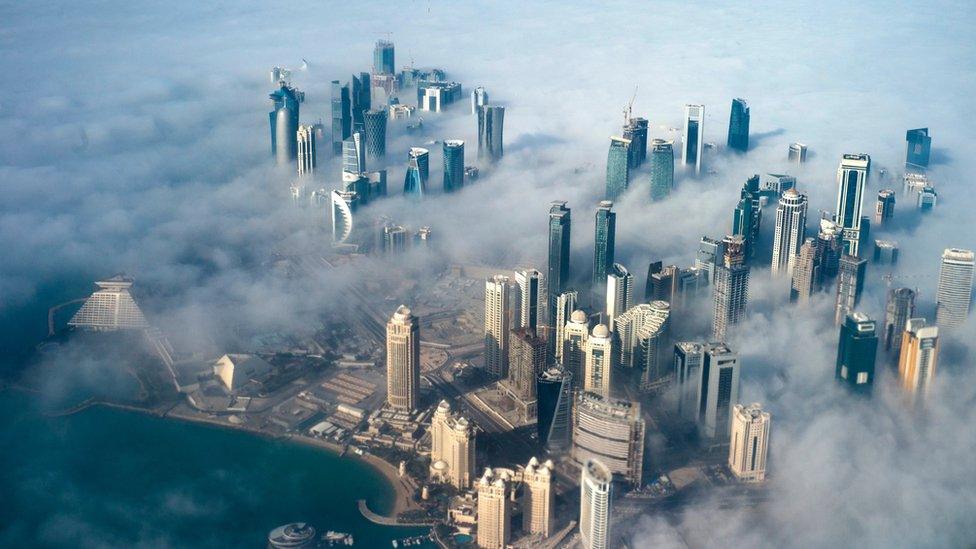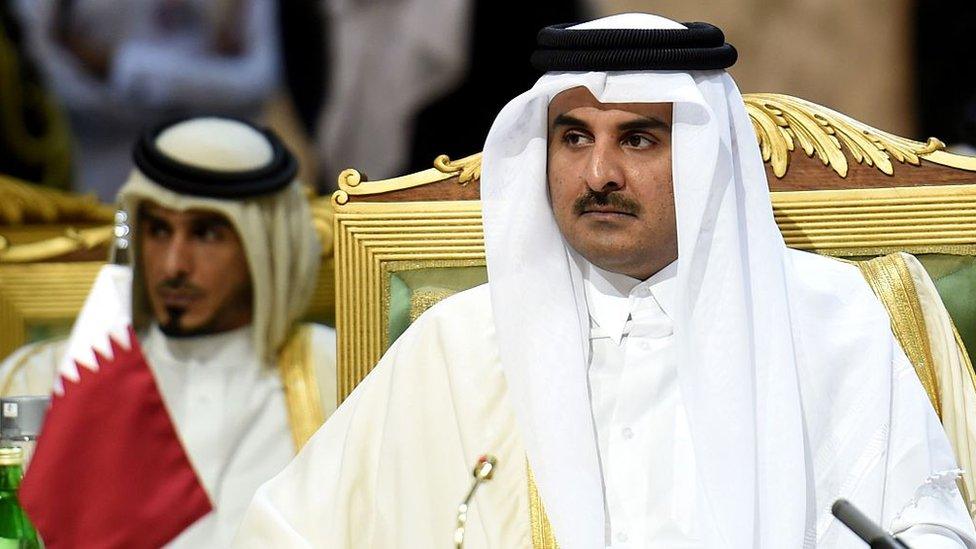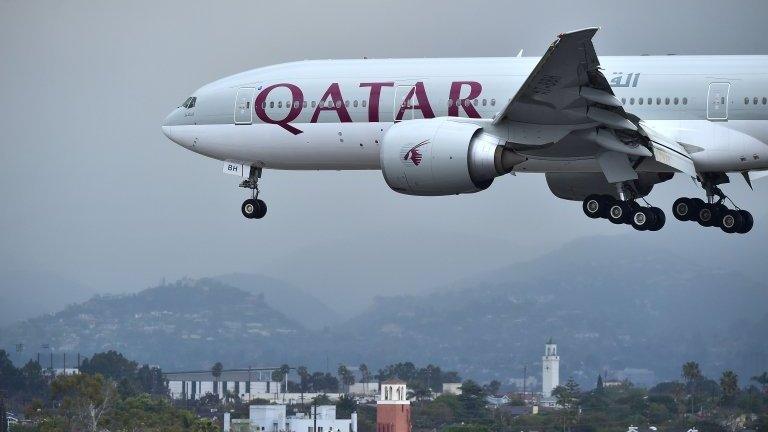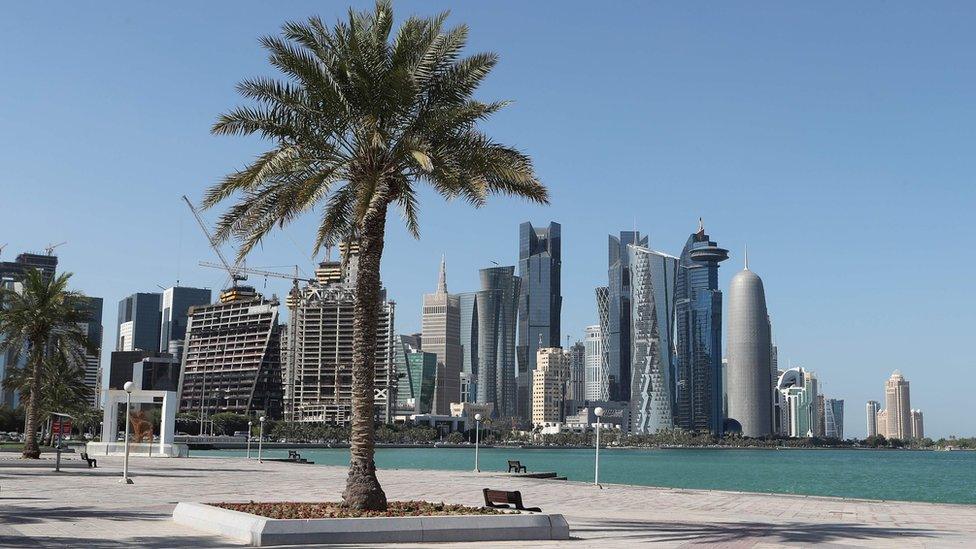Qatar says list of demands by Arab states not realistic
- Published

Qatar, which is rich in natural gas, is home to 2.7 million people
Qatar's foreign minister has rejected a list of 13 conditions set by four Arab states for lifting sanctions, saying it is neither reasonable nor actionable.
Qatar is under strict sanctions from Saudi Arabia and its allies, Egypt, the UAE and Bahrain. They accuse Qatar of backing terrorism.
Among other things, they have demanded the closure of Al Jazeera TV, which is funded by the Qatari government.
The UAE's foreign minister has suggested they may cut ties completely.
But Anwar Gargash added that the countries were not seeking to overthrow the Qatari leadership, the Associated Press news agency reports.
Qatar has been under unprecedented diplomatic and economic sanctions for more than two weeks, with Iran and Turkey increasingly supplying it with food and other goods.
It denies accusations that it is funding terrorism and fostering regional instability.
The four countries also want Qatar to reduce its ties with Iran and close a Turkish military base, setting a deadline on Friday of 10 days.
What has Qatar's government said?
The government is reviewing the demands, a spokesman has said.
Qatari Foreign Minister Sheikh Mohammed bin Abdulrahman al-Thani, quoted by Al-Jazeera, said: "The US secretary of state recently called upon the blockading nations to produce a list of grievances that was 'reasonable and actionable'.
"The British foreign secretary asked that the demands be 'measured and realistic.' This list does not satisfy that [sic] criteria."
Giles Trendle of Al Jazeera speaking in June: "We're not partisan to any particular group or ideology"
He said the demands were proof that the sanctions had "nothing to do with combating terrorism... [but] limiting Qatar's sovereignty, and outsourcing our foreign policy".
Al Jazeera accused them of trying to silence freedom of expression, adding: "We assert our right to practise our journalism professionally without bowing to pressure from any government or authority."
What effect are sanctions having?
Qatar's main import routes - by land from Saudi Arabia and by sea from container ships docked in the UAE - have been disrupted, and much of the surrounding airspace has been closed to its air traffic.

However, the small but wealthy country has so far avoided economic collapse by finding alternative routes.
Qatari citizens living in neighbouring countries or with family living there have been hit harder, Reuters news agency notes, because of ultimatums issued for them to leave.
What happens if the demands are not met?
The UAE's foreign minister said there would be a "parting of ways" with Qatar if it failed to meet them.
"The alternative is not escalation," he said. "The alternative is parting of ways. It's very difficult for us to maintain a collective grouping with one of the partners... actively promoting what is an extremist and terrorist agenda."
He described Qatar as a "Trojan horse" within the group of Arab monarchies.
Where is the US in this?
Correspondents say there has been frustration in Washington over the time taken by the Saudis and others to formalise their demands.
The disruption could have an impact on Qatar if the dispute drags on
US President Donald Trump has taken a hard line towards Qatar, accusing it of being a "high-level" sponsor of terrorism.
However, the Arab states involved in the crisis are all close allies of the US, while the largest US base in the Middle East is in Qatar.

Do you live in Qatar? Have you been affected by the sanctions? Let us know by emailing haveyoursay@bbc.co.uk, external
You can also contact us in the following ways:
Tweet: @BBC_HaveYourSay, external
WhatsApp: +447555 173285
Text an SMS or MMS to +44 7624 800 100 (international)
Please read our terms & conditions
- Published22 June 2017
- Published13 June 2017

- Published6 June 2017

- Published5 June 2017
